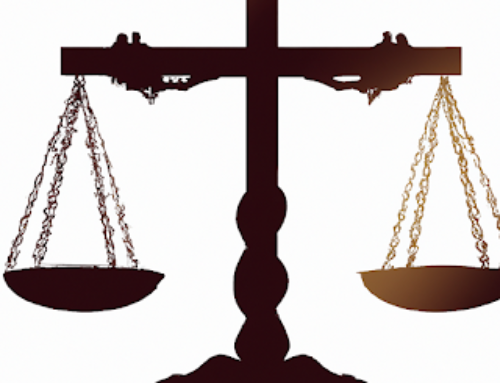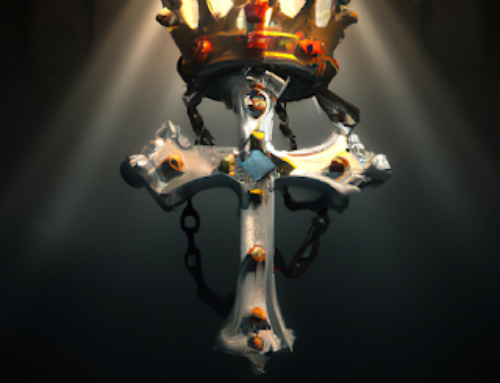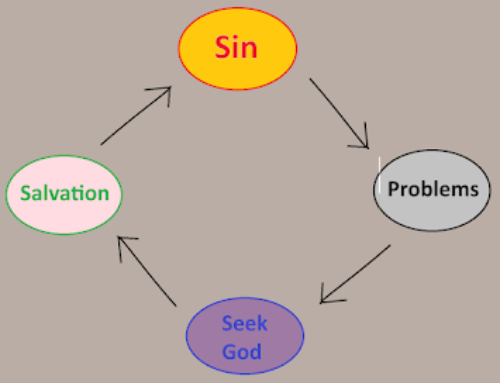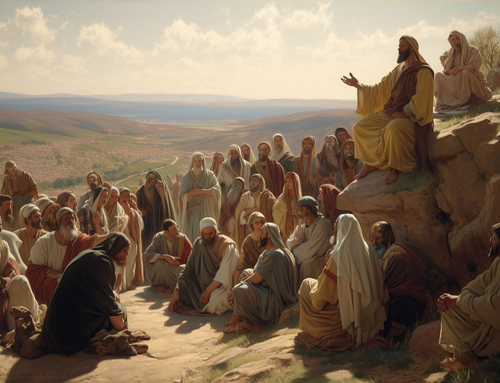Recently, Kyle Rittenhouse was found Not Guilty on all charges. Many people were upset by that decision. Those people felt he was a murderer and should have been judged as such. Others felt that at the very least, he had committed some crimes and shouldn’t have been allowed to walk away without suffering any consequences. Still others, believe the verdict was correct, and that he did not break any laws.
One thing is common among almost everybody, particularly in the U.S., when we feel like someone does something wrong, we expect to see them punished for it. When that doesn’t happen, it angers us. We’ve all seen examples of that anger in the form of riots and retribution in past events.
When someone wrongs us or just does wrong in general, we want that person to have to suffer consequences. With that being the case, isn’t it curious how we sometimes read the Bible or hear the Word and question the punishments that God delivers? We often call God merciful, but at the same time wonder how he could destroy almost all the life on the planet in a flood or destroy a couple cities with fire or create a place of eternal torment like Hell. Without context, none of those actions seem particularly merciful. The problem is that we sometimes dwell on the punishment but don’t put nearly as much thought into what pushed God to the point where he believed such punishments were necessary.
It’s often said that God is slow to anger. The Bible certainly proves that. Most of the Old Testament revolves around the children of Israel defying God. They committed crimes against Him over and over again. The Book of Judges tells story after story of the Chosen People forgetting what God did for them and abandoning his laws and commandments. They angered God, but he consistently forgave them and sent people to correct their course. The Books of Kings 1 and 2 describe the reigns of the various kings of Israel and Judah, and most of those kings did evil in the eyes of God. Time and time again, God gave the people slaps on the hand and did his best through prophets to bring his sheep back to the right path.
The Hebrews constantly defied, disobeyed, and disregarded God. Therefore, God was enraged. He expressed the desire to destroy them all, but he never did. He restrained himself when His children didn’t necessarily deserve that from him. There are limits to nearly everything, even God’s patience. Eventually, he came to a point where he felt compelled to lay the hammer down. He did that by using the Babylonians to destroy Jerusalem, murder or enslave many of the Hebrews, and scatter the rest. It was a harsh punishment for His people, so much so that an entire book of the Bible, Lamentations, is dedicated to mourning the results of God’s punishment.
Some might look at what God did and believe He went too far, but how much must God take before he is allowed to pass judgement. How much should the people get away with before they have to suffer consequences? God did his best to get the people to fall in line.
Consider the life of Jeremiah. He was the primary prophet addressing the people just before the fall of Jerusalem. In the book of Jeremiah, God essentially pleads with the people to remember what he had done for them and to turn from their evil ways. He called them out on the actions they committed generation after generation. We know a big problem was their tendency for idolatry.
As a thief is disgraced when he is caught, so the people of Israel are disgraced—they, their kings and their officials, their priests and their prophets. They say to wood, ‘You are my father,’ and to stone, ‘You gave me birth.’ They have turned their backs to me and not their faces; yet when they are in trouble, they say, ‘Come and save us!’ Where then are the gods you made for yourselves? Let them come if they can save you when you are in trouble! For you, Judah, have as many gods as you have towns. – Jeremiah 2:26-28
That was bad enough. Imagine being God and creating and showing favor to a group of people only for them to snub you by creating inanimate objects and praising those objects instead of the real God. It was like they were constantly slapping God in the face, but that was not all. They committed many sins, some of which were vile by any standard.
They have built the high places of Topheth in the Valley of Ben Hinnom to burn their sons and daughters in the fire—something I did not command, nor did it enter my mind. So beware, the days are coming, declares the Lord, when people will no longer call it Topheth or the Valley of Ben Hinnom, but the Valley of Slaughter, for they will bury the dead in Topheth until there is no more room. – Jeremiah 7:31-32
God blessed those people with children and, instead of caring for those children and raising them to know and love God, the people killed them in worship of foreign Gods. There are very few acts as low as what the Hebrews were doing, and the second part of the verse where God reveals the consequences shows just how angry he was about what they were doing.
Jeremiah spent decades of his life dedicated to passing on God’s word. He traveled from town to town and spoke out to anyone who would listen. What came from his actions? Very little.
Heal me, Lord, and I will be healed; save me and I will be saved, for you are the one I praise. They keep saying to me, “Where is the word of the Lord? Let it now be fulfilled!” I have not run away from being your shepherd; you know I have not desired the day of despair. What passes my lips is open before you. Do not be a terror to me; you are my refuge in the day of disaster. Let my persecutors be put to shame, but keep me from shame; let them be terrified, but keep me from terror.Bring on them the day of disaster; destroy them with double destruction. – Jeremiah 17:14-18
The people didn’t just reject Jeremiah and his efforts to get them to turn back to God. They mocked him and even tried to kill him. No matter how much God reprimanded them and warned them, the Hebrews remained committed to their evil ways. Eventually, God gave them all the punishment they deserved, and it was harsh indeed.
The Lord is like an enemy; he has swallowed up Israel. He has swallowed up all her palaces and destroyed her strongholds. He has multiplied mourning and lamentation for Daughter Judah. – Lamentations 2:5
The people made an enemy out of God. He punished them for it, and they deserved it. That is the key thing to remember. Yes, the punishment was severe, but so were the crimes.
The same is true for our lives. We constantly commit crimes against God. Hell may be the ultimate punishment, but just look at everything God did to help us escape it. He sent his Son to die for us. He made a way for everyone who believes in His Son to be given His Spirit. He sent apostles and ministers throughout the world to spread the Gospel. Yes, Hell is a harsh punishment, but to find yourself in that place, you literally have to reject God on practically every level.
When we are wronged, we seek justice. We expect the wrongdoers to be punished. God is the same, but he’s also different in that even when wrong is done to Him, he’ll go out of his way to see us saved from the consequences. He’s always willing to extend the branch of forgiveness. It’s on us to accept it, and if we choose not to accept his mercy then we’ll have to accept his punishment.






